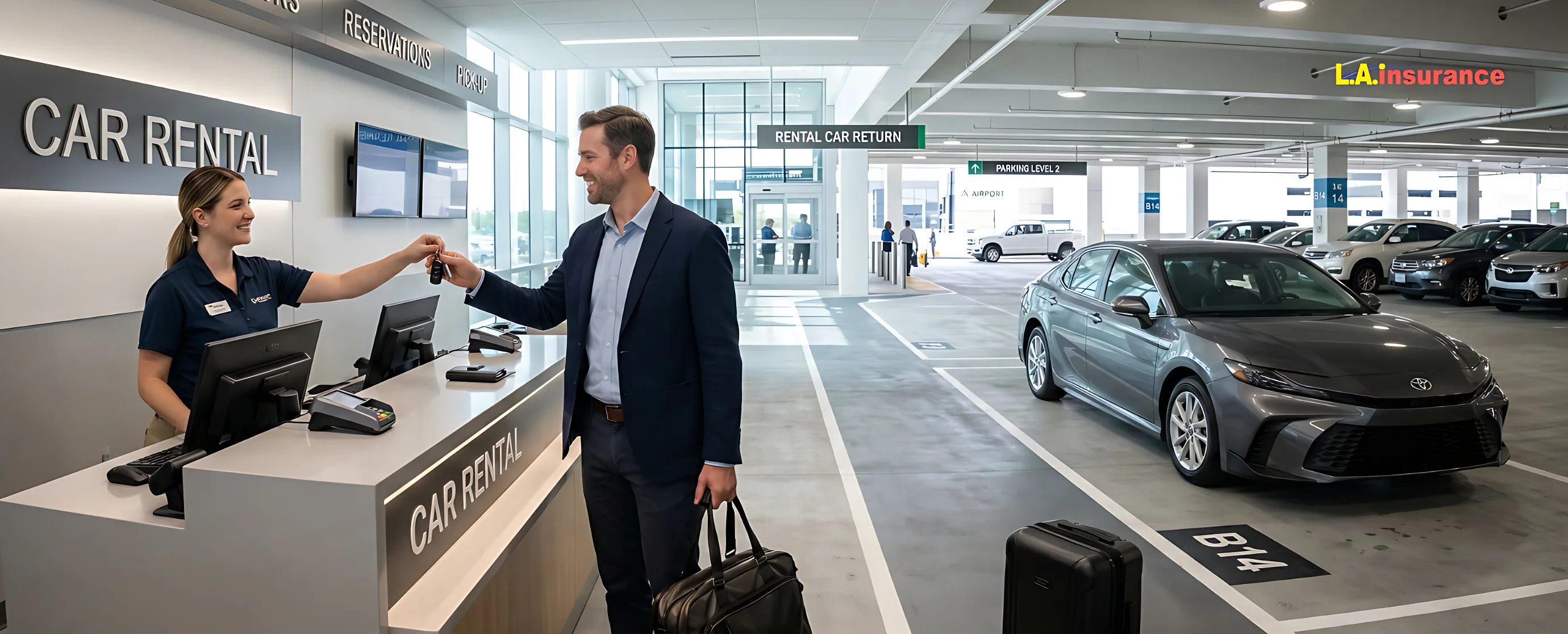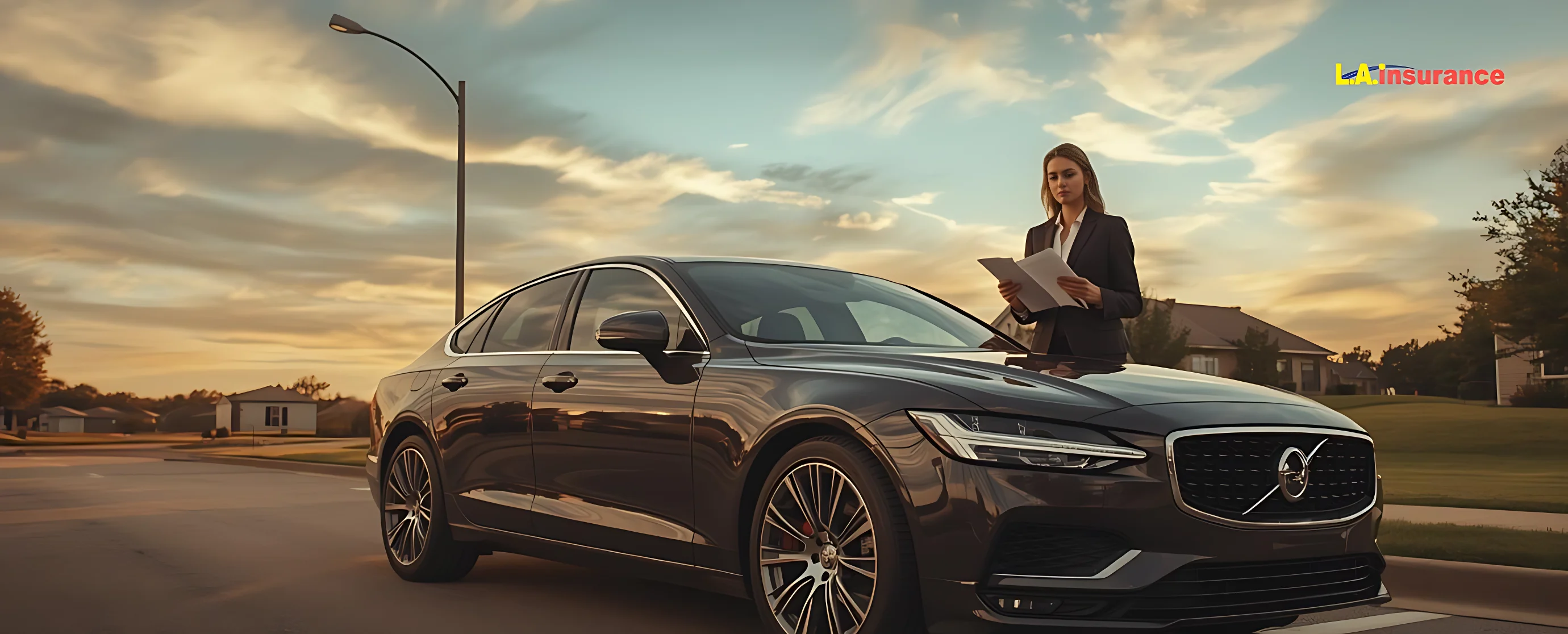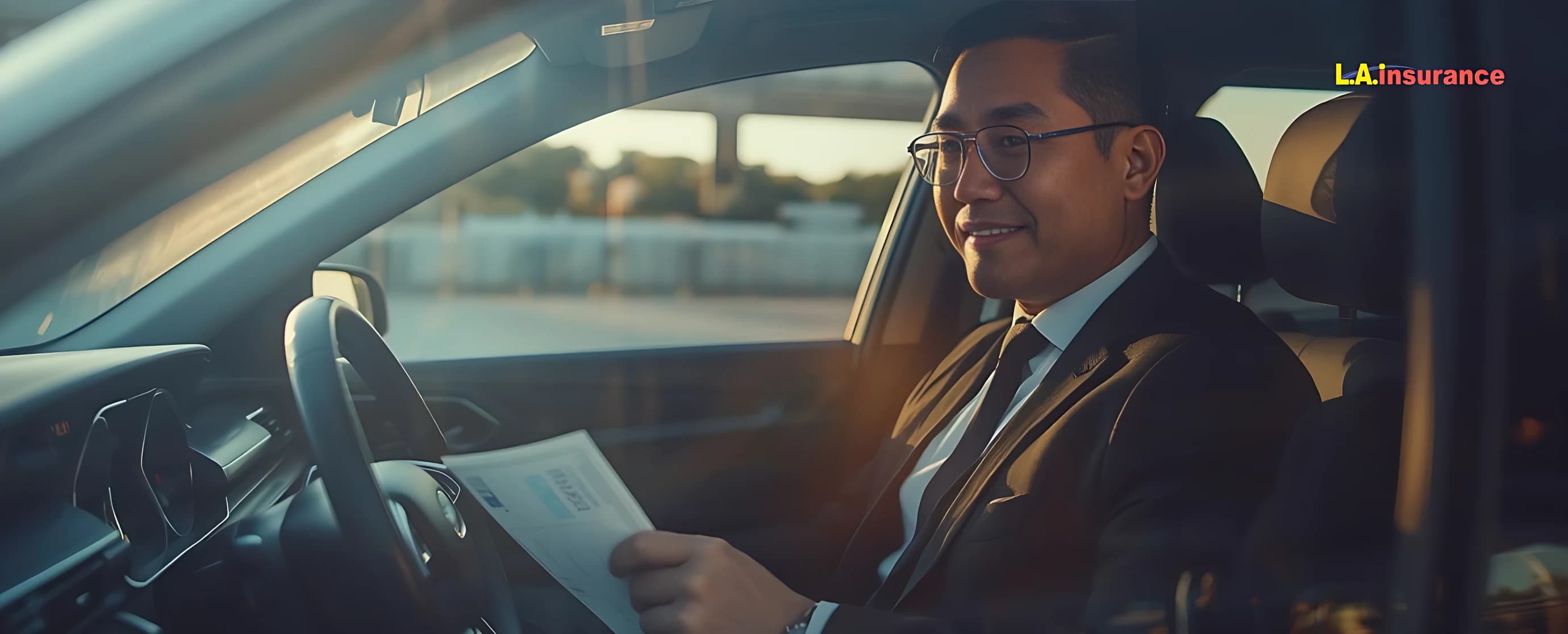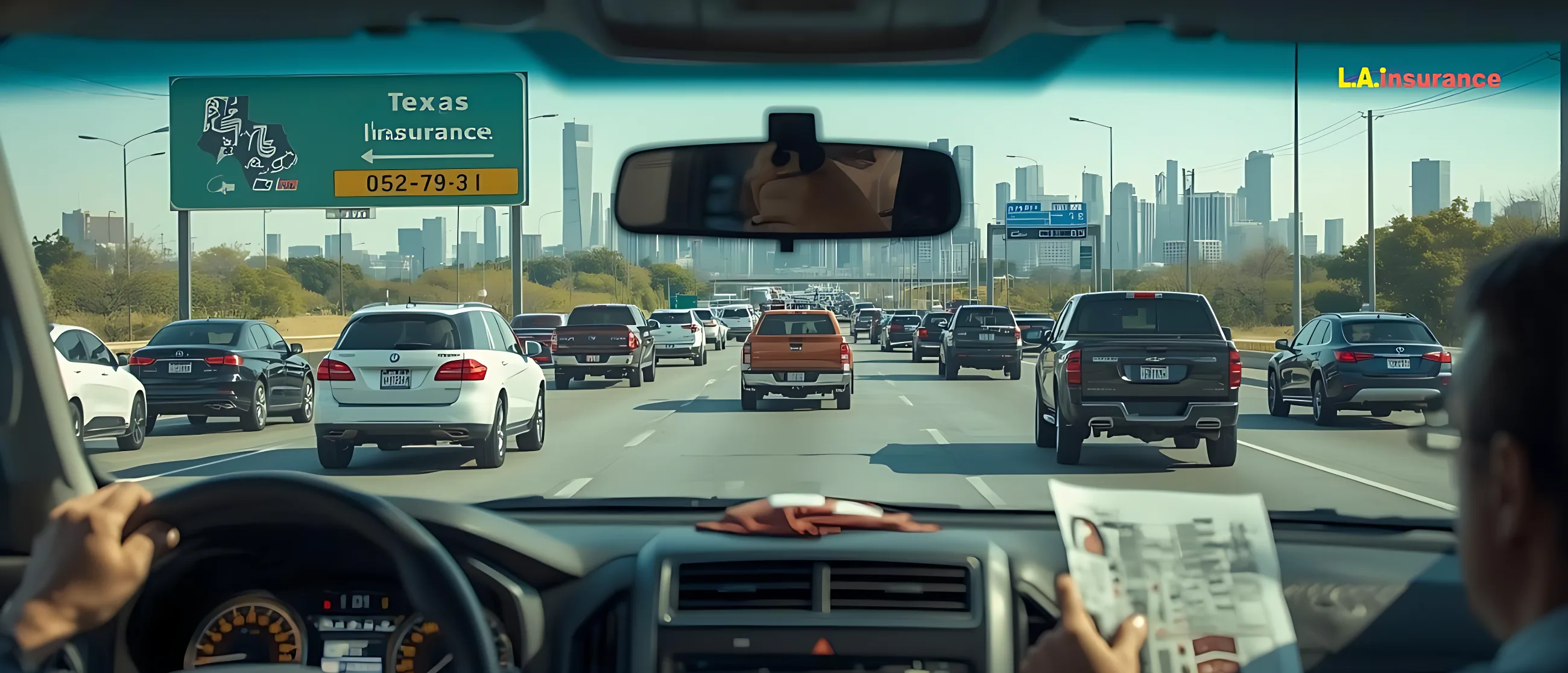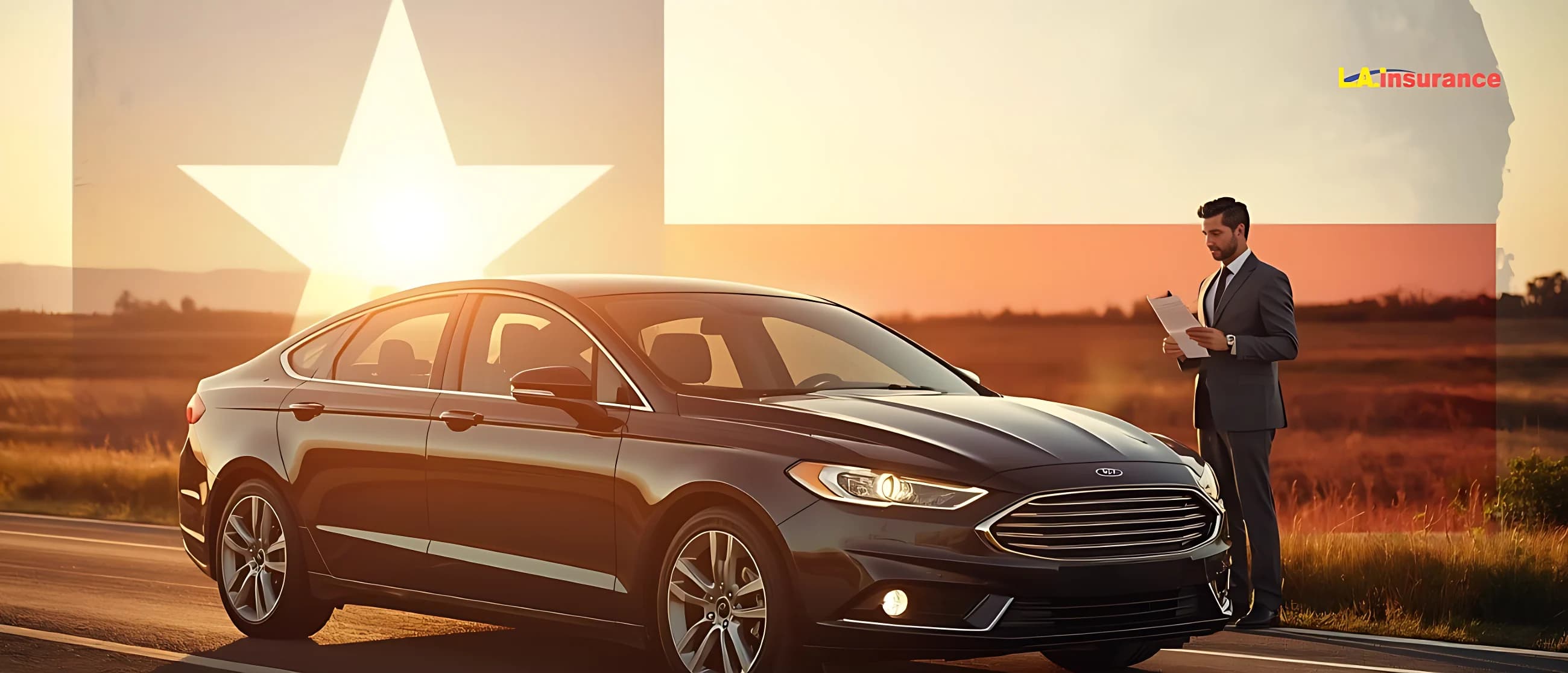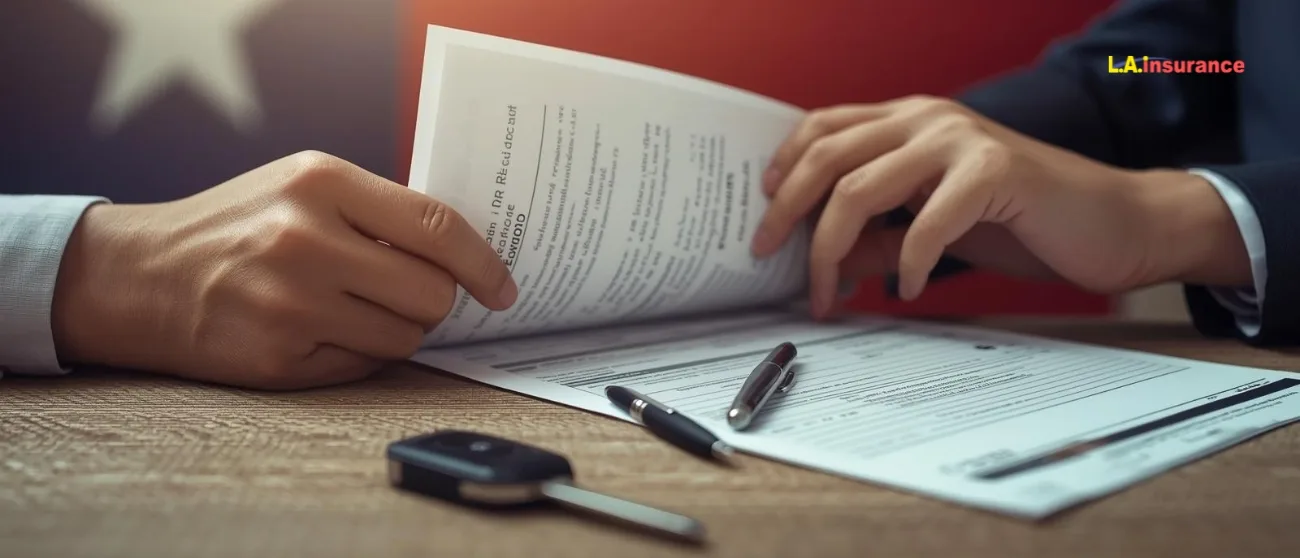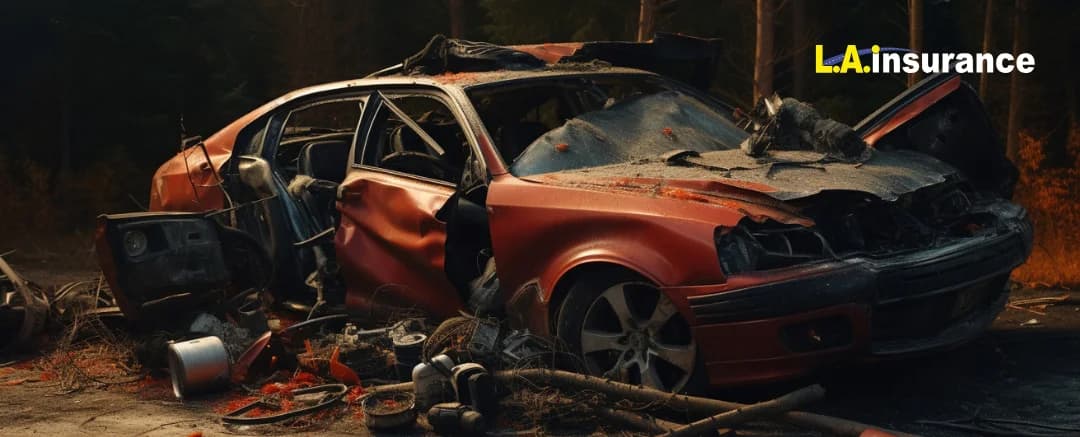
Publish Date: 07-07-2025
Auto Insurance
What Happens If You Wreck a Financed Car Without Insurance?
Wrecking a financed car without insurance can turn into a financial nightmare. You’re still responsible for the loan balance, and without coverage, you could owe thousands. Worse, if you’re at fault, you might face legal trouble and have to pay for property damage or medical expenses out of pocket. In this article, we’ll break down what happens in different scenarios, how insurance coverage helps, and why driving uninsured is a risky move.
Things You Will Face If You Wreck a Financed Car Without Insurance?
You will find yourself in difficult situations, both legally and financially, if you accidentally wreck a financed vehicle without insurance. If you still owe money on your car loan, you’re responsible for the outstanding loan balance. Even if the car is undrivable, you must pay off your auto loan.
Unfortunately, if you’re at fault, the other driver could sue you. In that case, you’ll first face legal consequences for driving uninsured. Then, the court or insurance company will decide the settlement based on the severity of the accident and the damages, such as property damage, bodily injury, and medical expenses.
Also, depending on state laws, you might face fines, license suspension, or worse. Replacing or repairing the vehicle would also be completely your responsibility if you don’t have the required insurance policy.
In short, if you wreck or total your financed vehicle without carrying the insurance required by your state and lender, you’ll have to pay the remaining auto loan out of pocket. You’ll face legal consequences, along with fines, penalties, license suspension, or even jail time, depending on who caused the accident and the severity of the damage.
Now, let’s examine the different scenarios and see what might happen if you wreck your financed vehicle without sufficient car insurance.
What If It Wasn’t Your Fault
It might be some sort of relief hearing that you’re not at fault. But unfortunately, you don’t have the insurance.
This means suing other driver could be difficult. However, since another driver caused the accident, their insurance company should cover your repair cost or actual cash value if the car is totaled.
But if the other driver is uninsured or doesn’t have sufficient coverage limits, you might have to rely on uninsured motorist coverage which you don’t have. That means paying out of pocket or suing, which isn’t always successful.
Pro Tip: Just because you’re not responsible for the accident doesn’t mean you have the right to drive uninsured. Even if you get compensation from another driver, you’ll face consequences for driving an uninsured vehicle.
If It Was Your Fault, What Will Happen to the Loan?
If you’re at fault, you must pay for property damage, injuries, and your remaining loan (if any). Since you have no insurance policy, your lender still expects full repayment. If you can’t pay, your credit score takes a hit, and repossession could follow.
In short, here's what would happen in this case:
- You might get sued by the victim driver.
- You’ll have to pay for the property damage, medical bills, or pain and suffering you cause to another driver.
- If your car is wrecked, you will get compensation neither from the other party nor from the insurance company.
- If your vehicle is declared a total loss, you’ll have to manage replacing the vehicle by yourself.
- You’ll also face legal consequences (e.g., fines, revoked, or license suspension) for driving uninsured.
Learn what happens if you drive without a license.
Facing Consequences for Being Uninsured
Auto insurance is mandatory in the United States. If you drive without minimum liability auto insurance, it’ll be considered illegal. As a result, you could face fines, license suspension, or even jail time. Some states require SR-22 filing, which proves financial responsibility but spikes your car insurance rates. Learn more about what happens if you don’t have car insurance.
What If Your Vehicle Gets Totaled and You Don’t Have Insurance?
If your car is wrecked and declared a total loss, you won’t get a dime from an insurance company as you don’t carry any auto insurance policy. The loan agreement still stands. This means you owe the loan amount with nothing to show for it. In such a case, some lenders might demand immediate repayment, while others might offer a payment plan.
In brief, here’s what may happen if your financed car gets totaled without insurance:
- You must pay off the remaining loan balance yourself.
- If another driver was at fault, their insurance should cover your ACV (actual cash value).
- In “No Pay, No Play” states, you may not receive full compensation if you’re uninsured.
- You might be able to negotiate with the lender to roll the remaining balance into a new loan.
Please note that if you still have a loan on your vehicle, you must carry the minimum insurance required by your lender. It’s practically not possible to drive a financed vehicle without insurance because if you do, your current insurance company will notify the lender/financial institution about it.
Besides, if you drop the lender-required coverage, they will force place insurance for which you have to pay higher rates. If you don’t pay for it, they might repossess your vehicle. However, if you have already fully paid off the loan, you simply have to replace your vehicle after a total loss.
Learn more about financed vehicle requirements by reading these relevant articles:
What If Your Vehicle Gets Totaled with Insurance?
If your financed car is damaged and can't be driven, or if it's declared a total loss, you still owe the debt. Some people try to refinance, but lenders usually won’t approve refinancing for a totaled car. If you include the remaining balance in a new loan, you will end up paying for a car you no longer own, plus interest.
Fortunately, if you have the right insurance, here’s what will happen:
- Your insurer will pay the car’s actual cash value (ACV), which may not be enough to cover your loan.
- If you owe more than the ACV payout, GAP insurance can cover the difference.
- If you don’t have GAP insurance, you must pay the remaining balance out-of-pocket.
If you’re unsure about paying off your loan in the event of a total loss, protect yourself with gap insurance coverage. Pair it with a full coverage policy at the cheapest rates from a trusted and affordable insurance agency today.
How Does Gap Insurance Help You with Total Loss Situation?
Gap insurance is useful if you crash your financed car and it is totaled. Your regular insurance only pays the car’s actual cash value (ACV). But what happens if you owe more than the car is worth? Gap insurance helps by covering the difference between your loan balance and what the insurance company pays. Without gap insurance, you'd have to pay the remaining amount yourself. This protection is important for new or heavily financed cars to avoid serious financial risk.
What If My Financed Vehicle Is Totaled And I Don’t Have Gap Insurance?
If you don't have gap insurance, you'll have to pay any remaining loan amount that insurance doesn't cover. Let’s say, Jake, a fictional driver, owes $30,000 on his car, but the insurance company says it’s worth only $25,000 after an accident. Without gap insurance, Jake must pay the extra $5,000 himself. Some lenders let you add this amount to a new loan, but this means you’ll be paying for a car you no longer own.
Learn more about Gap Insurance. Read related articles:
How Do I File an Insurance Claim If My Car Is Totaled?
If your financed car is declared a total loss, here are the steps to file a claim.
First, report the accident to your insurance company right away. They will send an adjuster to determine the actual cash value (ACV) of your car and check if the repair costs are higher than its value.
Next, inform your lender about the situation since they own the title to the car. The insurance company usually pays the lender first to settle the loan balance, if your policy covers it. If it doesn’t, and you don’t have gap insurance, you will have to pay the remaining balance yourself.
Finally, look over the settlement offer. If the payout appears too low, you can negotiate by using tools like Kelley Blue Book. Alternatively, you can consult a car accident lawyer for advice.
Don’t Drive Uninsured Whether It’s Financed or Fully Paid Off
Driving without insurance coverage is a significant financial risk. Whether your car is financed or fully paid off, an accident could leave you buried in debt. If you total a financed vehicle without full coverage, you’ll still be responsible for the loan balance. And if you’re at fault, you could face legal action, costly medical expenses, and hefty property damage bills.
Did you know it’s mandatory to have a full coverage policy for your financed vehicle? If you’re searching for affordable full coverage auto insurance, L.A. Insurance has got you covered. Get a cheap car insurance quote today! Call us at (800) 893-9393, find an agent near you, or simply text us.
We provide budget-friendly auto insurance across Michigan, Colorado, Texas, Florida, Georgia, Arizona, Nevada, and beyond. Connect with one of our friendly agents today—we’re here to help!
Frequently Asked Questions (FAQs)
How Can I Get a New Car After a Total Loss?
If your financed car is declared a total loss, your insurance company will pay the actual cash value (ACV) to your lender. If there’s leftover money, you can use it as a down payment for a new car. Otherwise, you may need a new loan.
Why Do I Need Full Coverage on a Financed Vehicle?
Most lenders require full coverage insurance to protect their investments. Without it, you could be responsible for the remaining balance if the car is totaled. Comprehensive insurance and collision insurance help cover repair costs or replacement which is also collectively known as “full coverage car insurance”.
Do I Still Have to Pay for a Totaled Financed Car?
Yes. Even if your car is totaled, you must pay off the loan balance. If your insurance policy payout is less than what you owe, gap insurance can help cover the difference. Otherwise, you’re responsible for the remaining balance.
Can I Go to Jail for Not Having Insurance on a Financed Vehicle?
It depends on your state. In most places, driving without liability insurance results in fines, license suspension, or an SR-22 filing. In severe cases, repeat offenses could lead to jail time, especially if you cause an accident.
What Happens If My Financed Vehicle Gets Totaled in Michigan?
Michigan follows a no-fault insurance system. Your insurance company pays for medical expenses and some property damage, regardless of fault. If you lack collision coverage, you might not get reimbursed for your vehicle’s loss unless another driver is fully at fault.
Editorial Disclaimer
The information provided on this blog is for general informational purposes only and does not constitute professional insurance, legal, or financial advice. Coverage and rates are subject to individual eligibility, underwriting guidelines, and state availability. For specific questions regarding your policy or to get an accurate quote, please contact a licensed L.A. Insurance agent directly. We're an independent agency and not a direct insurance carrier. For more information on how we operate and handle your data, please see our Terms and Conditions and Privacy Policy.
Tag :
Auto insurance
Comercial Auto
